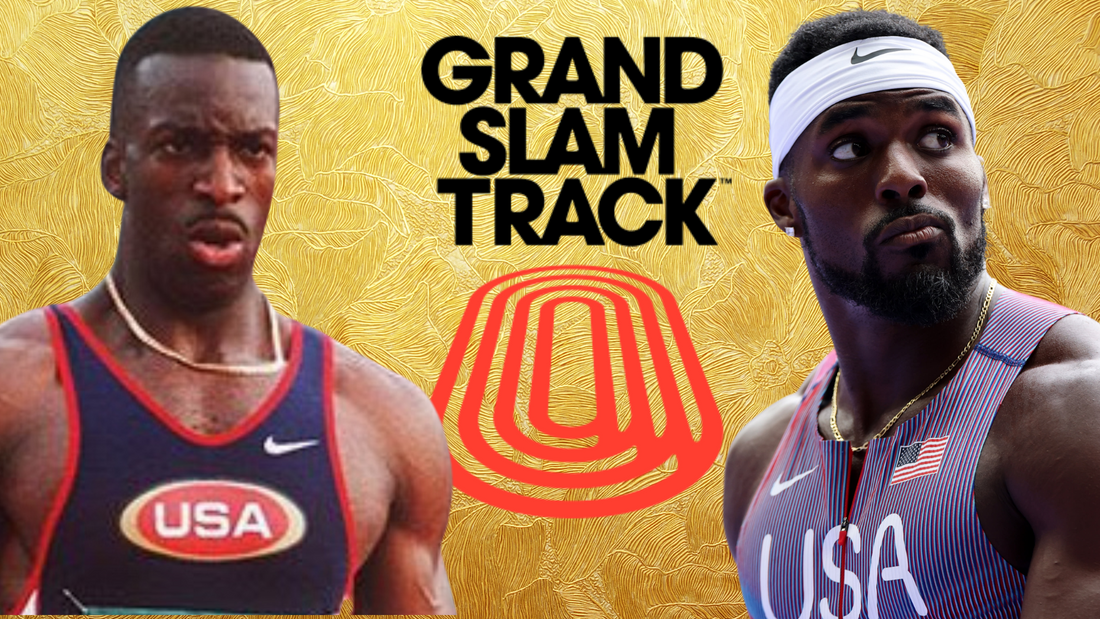Noah Lyles, the reigning Olympic 100m champion and one of track’s most marketable stars, has become the glaring omission from Michael Johnson’s Grand Slam Track (GST) series. Despite the league’s $100,000-per-event prize money and promises to revolutionize the sport, Lyles remains unconvinced—and his reasons expose cracks in GST’s ambitious blueprint.
The Money Problem
Lyles claims GST lowballed him. “They underbid me. This is before the Olympics,” he revealed on his Beyond The Records podcast, though he didn’t disclose specifics. For context: Top-tier sprinters like Lyles can reportedly earn six figures for single Diamond League appearances, and GST’s $100,000 winner’s purse—while historic—requires athletes to compete in multiple events to chase titles like “short sprint champion.”
“I want to hear, is there a watch deal? A betting sponsor?” Lyles asked, critiquing GST’s sponsorship gaps. Unlike the Diamond League, which has Rolex and TDK as global partners, GST’s commercial roster remains underdeveloped.
The Model’s Viability
Lyles argues GST’s $30 million startup funding won’t sustain long-term growth. “They’re not going to make money this year, or next,” he said. The league’s four-meet structure—Kingston, Miami, London, and Paris—requires renting stadiums, a cost Lyles calls avoidable: “Build one stadium in the U.S. and host all four meets there.”
Early attendance numbers validated his concerns. April’s Kingston event saw half-empty stands at Jamaica’s National Stadium, a shocking outcome in a track-obsessed nation. “If you can’t fill seats in Jamaica, where can you?” said Jon Mulkeen Magyar, former Diamond League VP.
The Identity Crisis
GST’s “multi-event champion” model baffles Lyles. To win the short sprint title, athletes must race the 100m and 200m. Hurdlers like Grant Holloway, however, would compete in the 100m and 110m hurdles for the same title. “If I say I’m the 100m champion, and Grant says he’s the 100m champion, how does that work?” Lyles questioned.
This overlap risks diluting GST’s marketing appeal. “There has to be one winner,” Lyles stressed. “Extra steps don’t reinvent track—they confuse it.”
The Broadcast Experiment
While GST secured TV deals with The CW and Peacock, its broadcast pacing drew ire. Long gaps between races and filler content left even diehards unimpressed. “It felt like a mausoleum,” Magyar said of the Kingston atmosphere. Lyles, Holloway, and Rai Benjamin criticized the downtime, with Lyles calling it “a momentum killer.”
By contrast, Diamond League meets are tightly produced, with races often minutes apart. “Track fans want action, not talk,” said a World Athletics insider.
The Stubborn Optimism
Michael Johnson remains defiant. “We don’t need anyone else,” he said, citing signees like Sydney McLaughlin-Levrone and Yared Nuguse. He touts GST’s accessibility—every session airs live on free-to-air TV—as a game-changer. “No sport is more accessible,” Johnson claimed.
Lyles isn’t fully closed off. “I’d love to be proven wrong,” he admitted, leaving the door ajar. But with Miami’s meet upcoming, GST must address its flaws quickly. “Empty seats and confused titles won’t attract sponsors,” warned a sports marketing exec.
Lyles’ absence isn’t just about money—it’s about credibility. GST’s hybrid of team sports’ ownership models and track’s traditions has yet to resonate. For now, the league remains a high-stakes experiment. As Lyles put it: “You can’t shortcut greatness.”



































































